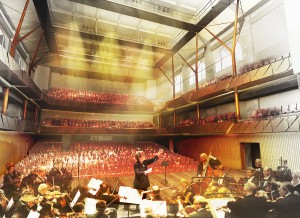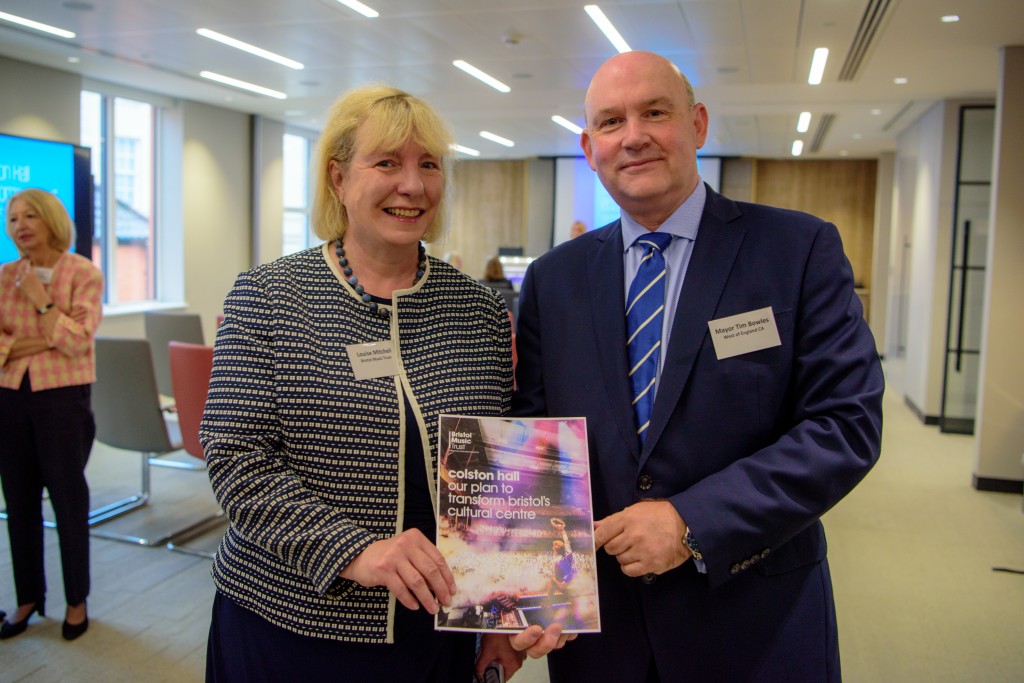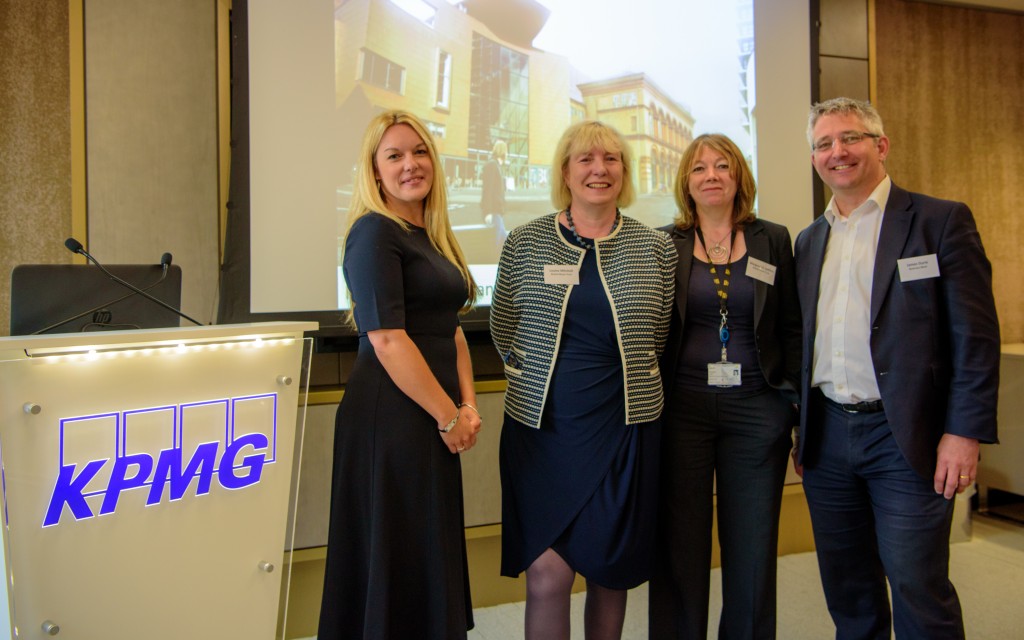The multi-million pound transformation planned for Bristol concert venue Colston Hall could add more than £400m to the economy over two decades, according to new research published this week.
Job creation, higher ticket sales from an increased concert programme and more spending in its supply chain could generate £254m for Bristol, a further £9.6m across the South West and nearly £150m throughout the UK.
The research was carried out by accountancy group KMPG, which launched it at a business breakfast in its Bristol office. 
Colston Hall, which celebrates its 150th anniversary this year, plans to undergo a £48.8m transformation, starting next year – the biggest ever redevelopment in the city’s arts sector.
So far it has raised more than two-thirds of the total. Under the plans, the building will reopen in 2020 – the starting point for KPMG’s economic impact research – with upgraded facilities, including new performance spaces and vastly improved backstage, rehearsal and educational facilities.
Colston Hall is the last concert hall in a major UK city not to have undergone a major redevelopment since the 1980s.
In its 2015/16 financial year, the building – which since 2011 has been run by the charitable body Bristol Music Trust – generated £17.4m for the economy.
The upgrade will allow the venue to increase audience capacity by up to 30% from its current maximum of 2,369 and stage 54% more performances to 670 a year.
That could generate a 33% increase in ticket sales – taking the total to 325,000 a year – with a 32% increase in its economic impact to an annual average of £20.6m, or £412.5m over 20 years from 2020.
It could also create nearly 50 additional jobs, taking staffing levels to around 160 based on full-time equivalent posts.
Speaking at the launch, Bristol Music Trust chief executive Louise Mitchell said: “We’ve clearly set out how our transformation will create a world-class performance and education venue that will benefit Bristol, the region and beyond.
“The £48.8m transformation planned for the hall deliver a leading European, national, regional centre for the performing arts and enhancing the hall’s education capabilities, particularly for those with special educational needs and disabilities.”
She said KPMG’s research was a good example of business and culture working together for the good of the city.
Colston Hall delivered economic benefits and cultural benefits to Bristol and the wider region, she added, with artists helping create conditions in which the economy can flourish.
“But arts and cultural sector organisations must also demonstrate their value to the local economy,” she said.
“The Trust must play its part to help the region prosper. The KPMG report shows that this investment in the venue will deliver substantial returns to the economy.
“Over half the money produced by the new venue would be generated in Bristol and will support the city to economically thrive and grow.”
Commitments of funding raised so far for Colston Hall’s transformation include £10m from Bristol City Council, £10m from Arts Council England, £5m from the government and £4.75m from the Heritage Lottery Fund as well as private donations.
Pictured at the launch of the KPMG economic impact report. Top: Bristol Music Trust chief executive Louise Mitchell with West of England Metro Mayor Tim Bowles. Bottom: KPMG director Heather Sharp, Louise Mitchell, Bristol Music Trust financial & commercial director Marguerite Jenkin, and James Durie, director at Bristol Chamber & Initiative at Business West































